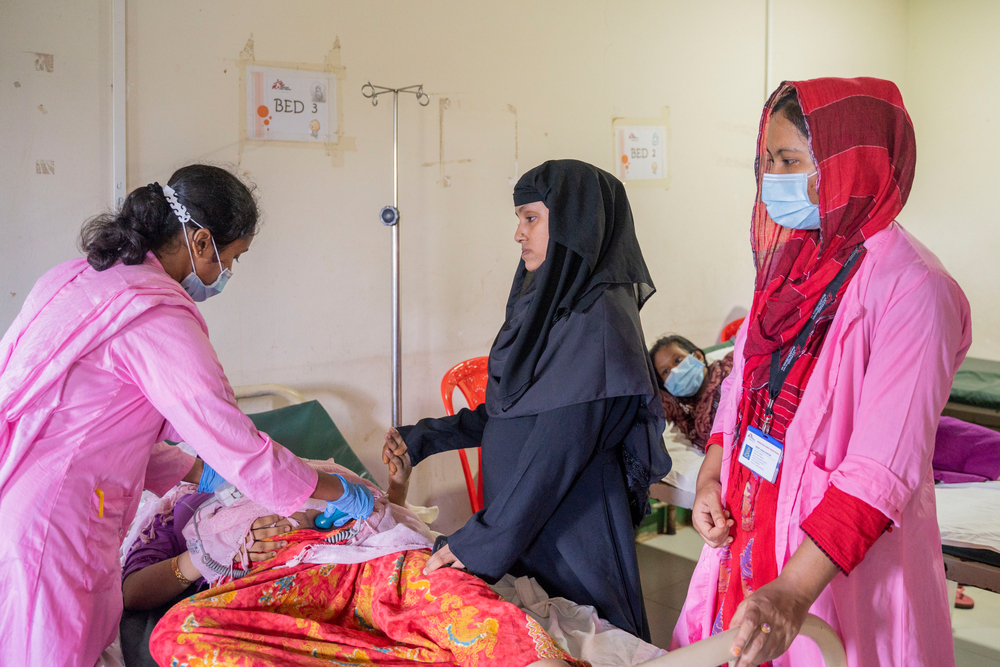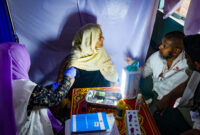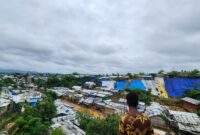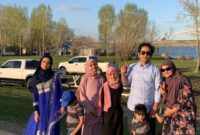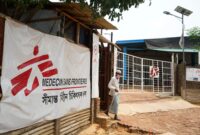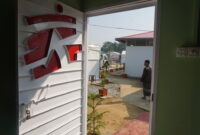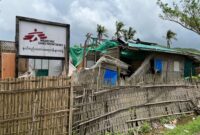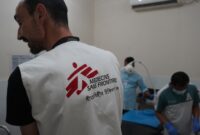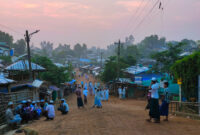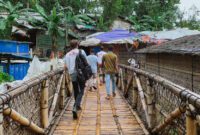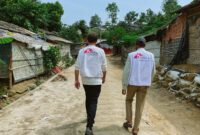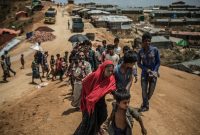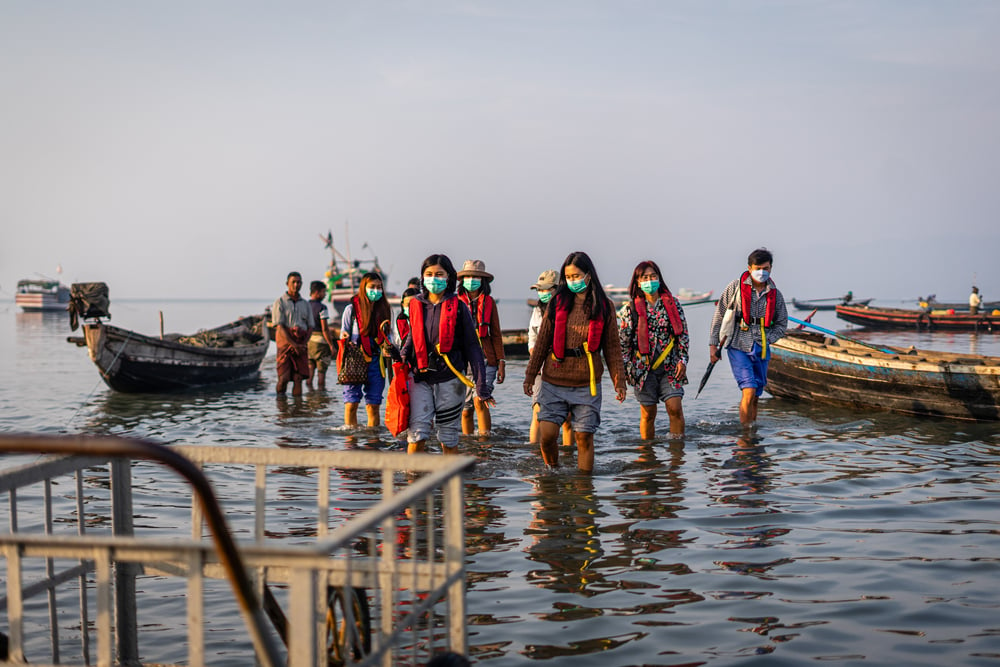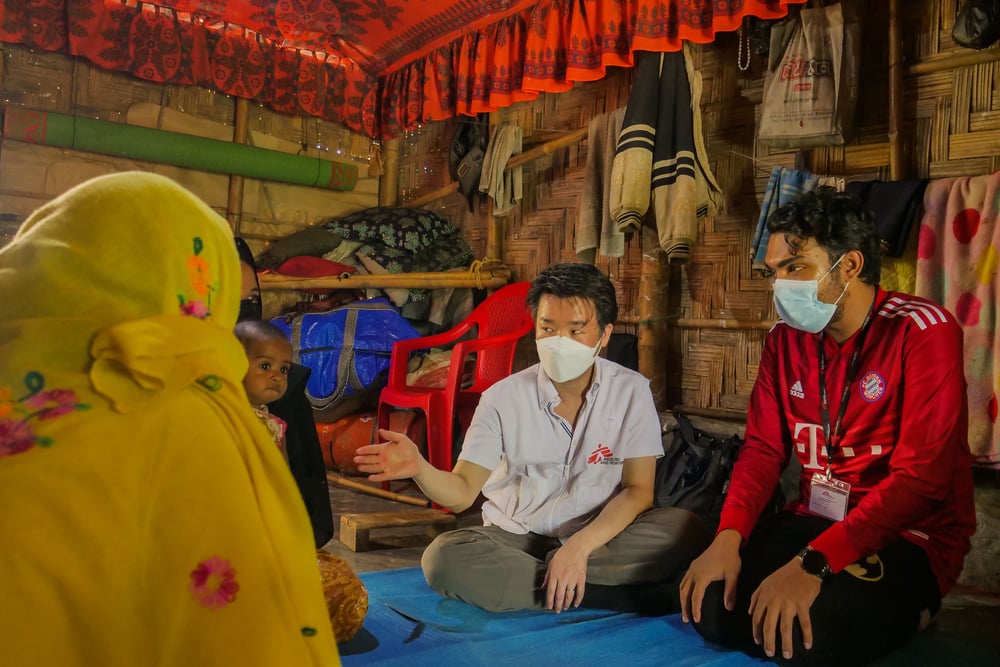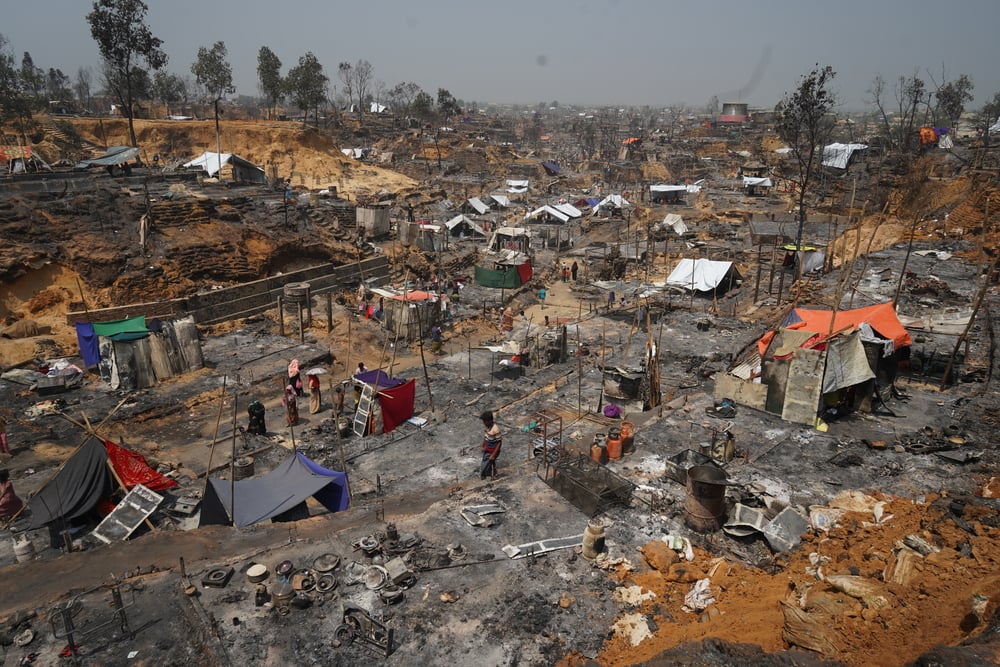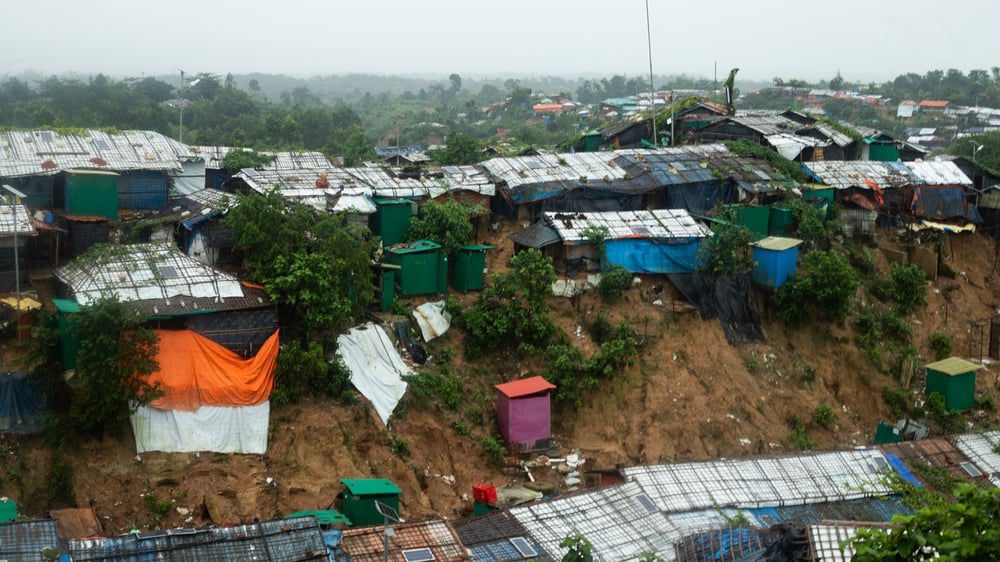‘We must not be okay with this’: A Canadian midwife on living conditions for Rohingya refugees in Cox’s Bazar, Bangladesh
“Please don’t mind, Shanika,” my colleague Shirin prefaces, as do many Bangladeshis I have met before saying something that could be potentially offensive, “maybe they will forget about here.”
“Here,” in this case, is the only primary health care centre with childbirth services in Camp 23, a relatively small displacement camp of 23,000 Rohingya refugees in Cox’s Bazar, Bangladesh — part of an irregularly divided refugee mega-camp that is the collective home of over 1 million Rohingya people who have been forcibly displaced from their homes in Myanmar by violence against their communities. “Home,” however, is also a stretch to describe this place where so many Rohingya are currently living; a shelter would be a better term.
Limited access to clean water leading to maternal health complications
Shirin has raised a legitimate concern. Working at this facility as a midwife manager has shown me the importance of Doctors Without Borders/Médecins Sans Frontières (MSF)’s role in providing care to those most in need. Caring for women in pregnancy is a big one, especially when we consider the role of mothers in a family unit. The midwives I work with test for and treat bladder infections that are very common, perhaps in part due to the poor water and sanitation conditions of the camp. These families are unfortunately no strangers to conditions such as conjunctivitis or widespread scabies. With limited access to clean water, families must ration the little they have.
But consider bladder infections in pregnancy, which can contribute to pre-term birth, which can lead to a low birth-weight baby, which can lead to nursing issues and health challenges for newborns. The cascade of health outcomes from one problem leading to another has especially high stakes in pregnancy.
Consider also women who are anemic due to malnutrition, and the effect of further anemia after birth, or worse, after a post-partum hemorrhage. Many Rohingya women in the camp do not have the luxury of rest after giving birth. Thankfully, MSF midwives can provide treatment with iron supplementation during pregnancy, can advise a facility birth to reduce bleeding, and can follow up with these women closely for postnatal care. For high-risk births, MSF can transfer these moms by ambulance out of the camp to a facility with blood transfusion capacity. This is not an easy feat, with having to arrange a blood donor because there are no blood banks, but the midwives work hard to meet the needs of their patients. The MSF outreach team helps by mobilizing their blood donor contact list; and the traditional birth attendants, who are an extension of the facility, use their influence to encourage facility deliveries.
Relying on support from the international community
“Maybe they will forget about here.” They, in this case, is the collective global community who follows the Rohingya crisis from afar. Shirin knows that it is because of MSF donors that we are able to provide the best medical care with the resources we have. We celebrated that fact a couple months ago when we got ultrasound at the facility and five midwives were trained in obstetrical ultrasonography to identify complications such as retained products, and miscarriages and bleeding due to poor position of the placenta. During training, many women came to the facility to try and get an ultrasound of their baby.
However, the larger reality in which our patients here in Cox’s Bazar continue to find themselves is difficult, and hopes for broader change remain low. With few signs of movement for the Rohingya, they continue to remain trapped in precarious living situations. Most families have lived in these camps for over a few years at least, and my fear is that the world is becoming complacent about their fate. My hope is that we do not become settled and normalize the poor sanitation, lack of access to clean water and health disparities these Rohingya refugees are forced to live with. We must not be okay with this being a long-term standing situation, for these women and families are counting on the world to help.
Shanika Thomas is a midwife from Hamilton, Ontario, who recently returned from working with MSF to provide healthcare to Rohingya refugees in Cox’s Bazar, Bangladesh.
